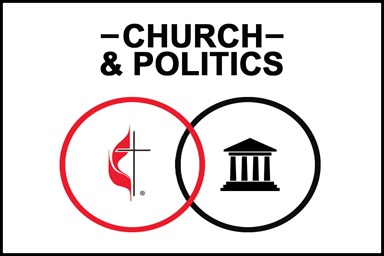The Kickstarter-launched rock album. The Indiegogo-funded science lab. The GoFundMe-aided charity.
In this increasingly connected online world, is crowdfunding that one weird trick churches need to bolster giving?
Crowdfunding is the commonly used term for raising small amounts of money from a large number of people for a project or venture — typically via certain websites and related social media.
The General Council on Finance and Administration, The United Methodist Church’s finance agency, has published a guide for U.S. churches considering crowdfunding sites.
The agency’s overall message: User beware.
The recommendations, approved by the agency’s board, are:
- Be careful what you ask for and promise in return.
“United Methodist ministries should only solicit donations for charitable causes, without a promise of rewards such as tote bags, T-shirts, etc.,” the agency says.
- Know potential givers have reason to be cautious, too.
“The Better Business Bureau warns that crowdfunding sites have not evolved to the point of inspiring public confidence and they recommend caution. There is usually no clear indication on how funds from these websites will be accounted for, utilized or what will happen with any excess funds.”
- Be clear about your status as a United Methodist ministry and nonprofit.
“When United Methodist ministries consider soliciting for charitable causes on crowdfunding websites, it is the recommendation of GCFA that such solicitations clearly state that the funds are being given to an organization within The United Methodist Church connection that is a 501(c)(3) organization. This provides basic assurance that the funds will be utilized for the purpose stated. Local churches, conferences and their affiliated ministries should clearly indicate their name on the website post, and assure donors that they will be provided with a letter for tax deduction purposes, when appropriate.”
- Be wary of seeking help for or giving to individuals through crowdfunding sites.
“Crowdfunding solicitations supporting specific individuals are especially susceptible to abuse, so appeals on crowdfunding sites should be limited to currently accepted giving options such as age-specific programs, programs with specific initiatives, and ministries that generally benefit groups of individuals. Should a church organization solicit crowdfunding support for specific individuals, it should be sure such solicitation does not violate applicable tax law.”
- Remember The Advance, The United Methodist Church’s already established designated giving program.
The Advance, through the United Methodist Board of Global Ministries, “is an established and recommended safe and secure means of asking for crowdfunding funds for ministry within The United Methodist Church.”
- Use established United Methodist entities to send funds collected on behalf on ministries in the central conferences, church regions in Africa, Asia and Europe.
“It is recommended that funds collected by a local church or conference through crowdfunding on behalf of ministries in the central conferences are sent through an established arm of The United Methodist Church (such as The Advance) or other registered not-for-profit in the United States.”
The agency’s guide also offers an overview of four major crowdfunding sites: GoFundMe, Indiegogo, Kickstarter and CrowdRise.
The recommendations come in response to legislation approved by General Conference, the denomination’s top lawmaking assembly, in 2016.
That legislation directed the agency "to provide guidance and consultation to churches, conferences and other United Methodist organizations" on crowdfunding and prepare a list of approved crowdfunding sites.
St. Mark’s United Methodist Church in Tucson, Arizona, submitted the legislation after its most recent capital campaign for building improvements.
“We didn’t think we should go back to the congregation every two years asking them for more money, so we thought this would be another way to do fundraising,” said Mark Hrabe, the church member who drew up the legislation.
Still, he said, he wishes the General Council on Finance and Administration guide offered more information on potential pitfalls.
The Federal Trade Commission settled its first crowdfunding case in 2015 against a man who said he would use his Kickstarter campaign to create a board game and used the funds for personal expenses instead. Consumer Reports documents other scams, such as a fake cancer patient, and ways to spot crowdfunding scammers.
Hrabe said he sees potential for General Conference, in four years, to approve The United Methodist Church’s own crowdfunding site. Young People’s Ministries, part of United Methodist Discipleship Ministries, already has a crowdfunding site, revGO, to support United Methodist ministries engaging young people in mission.
With a broader site endorsed by the denomination, Hrabe said, “At least, people would be assured that there wouldn’t be any issues that money is used for the intended result.”
Hahn is a multimedia news reporter for United Methodist News Service. Contact her at (615) 742-5470 or [email protected].
Like what you're reading? Support the ministry of UM News! Your support ensures the latest denominational news, dynamic stories and informative articles will continue to connect our global community. Make a tax-deductible donation at ResourceUMC.org/GiveUMCom.




